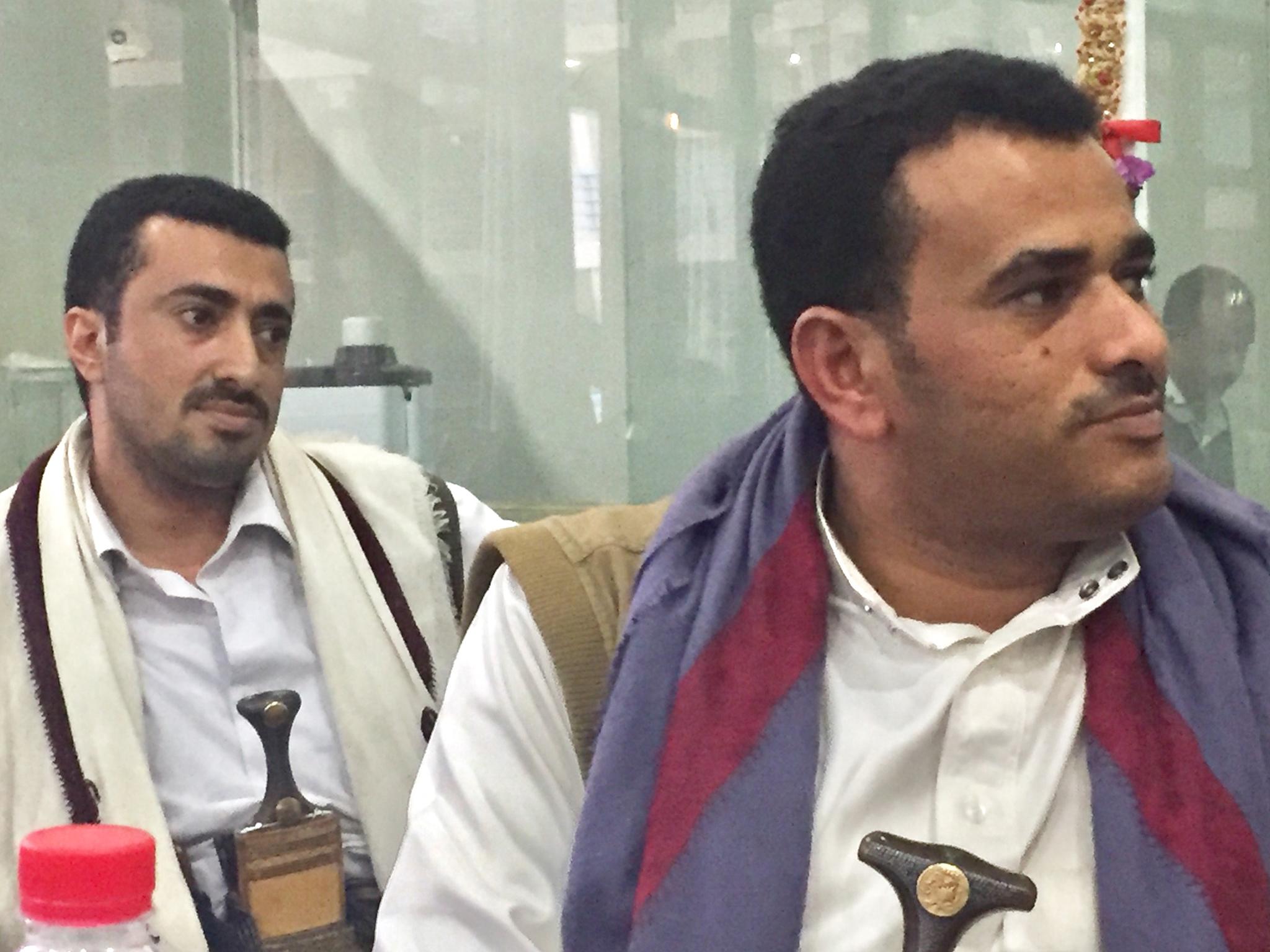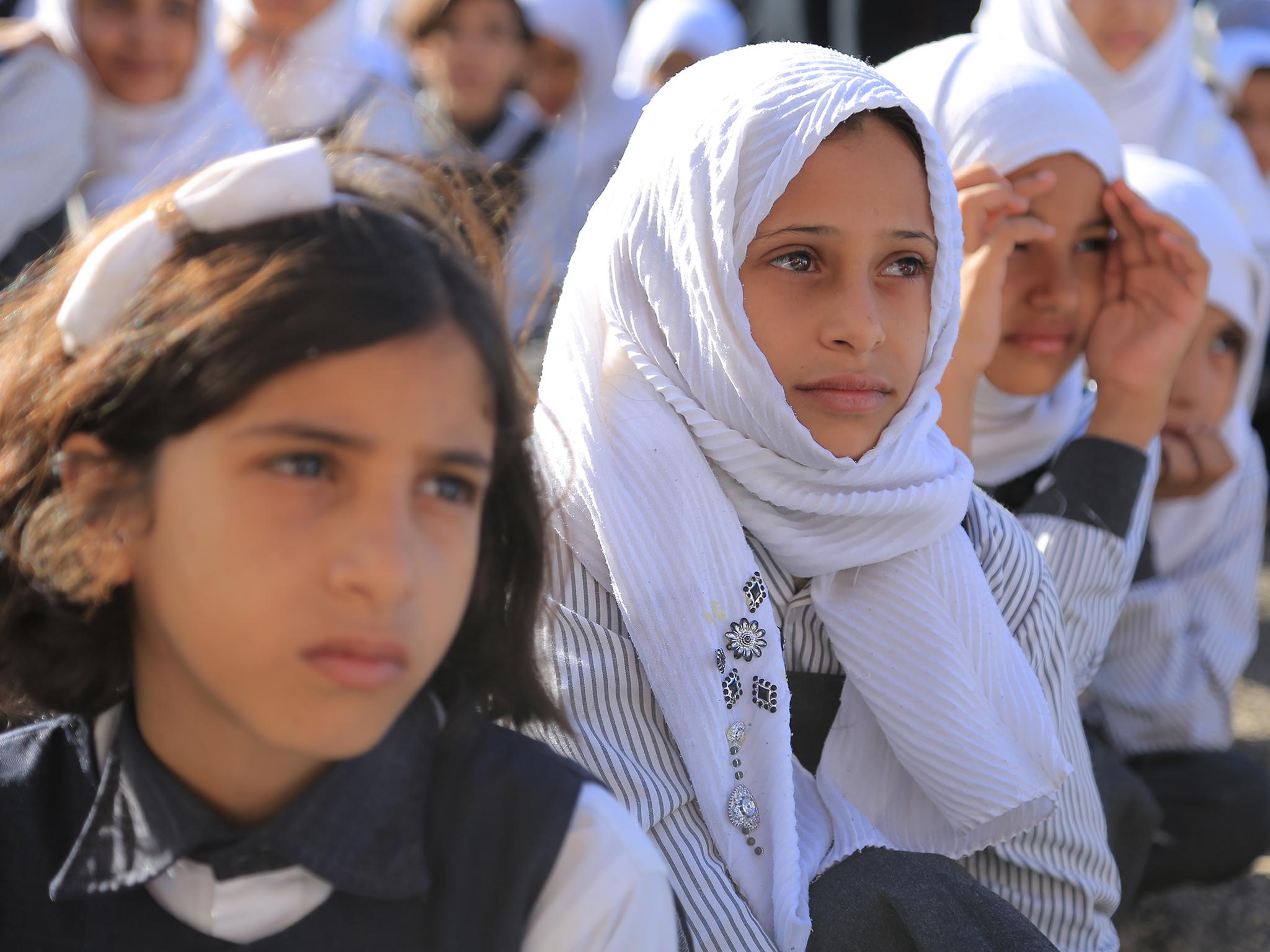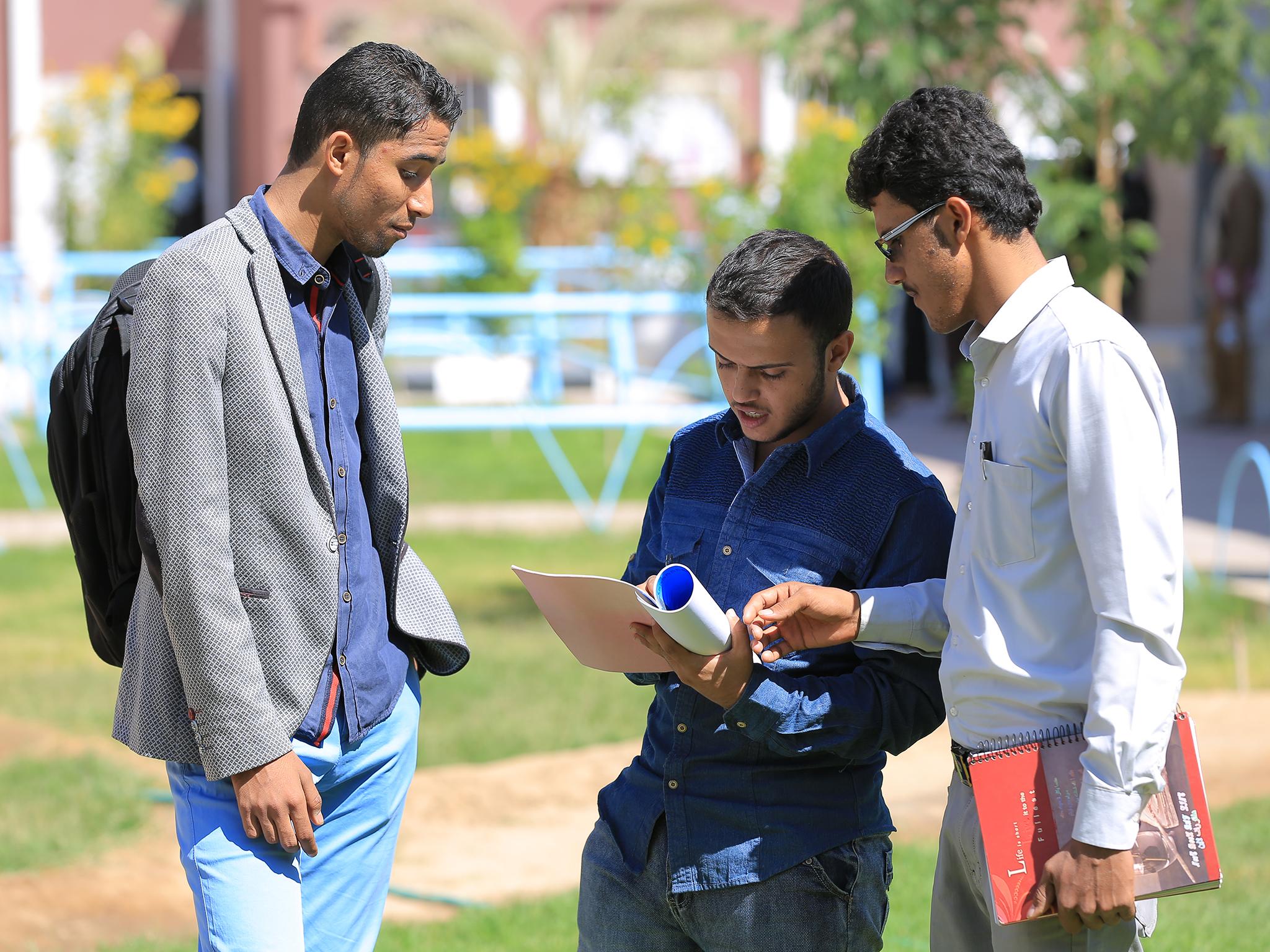As Yemen slides further into the hell of war, one town is thriving like never before
A dusty town once known as the al Qaeda capital of the country is now booming thanks to Yemen’s civil war. The Independent meets the savvy traders and tribal leaders for whom life is better than ever
Your support helps us to tell the story
From reproductive rights to climate change to Big Tech, The Independent is on the ground when the story is developing. Whether it's investigating the financials of Elon Musk's pro-Trump PAC or producing our latest documentary, 'The A Word', which shines a light on the American women fighting for reproductive rights, we know how important it is to parse out the facts from the messaging.
At such a critical moment in US history, we need reporters on the ground. Your donation allows us to keep sending journalists to speak to both sides of the story.
The Independent is trusted by Americans across the entire political spectrum. And unlike many other quality news outlets, we choose not to lock Americans out of our reporting and analysis with paywalls. We believe quality journalism should be available to everyone, paid for by those who can afford it.
Your support makes all the difference.“Everybody knows us. No one shoots the khat driver,” said 33-year-old Bashir Samedi.
In Yemen’s vicious civil war, many of the front lines over which Houthi rebels and tribal forces loyal to the government face off are now at stalemate. There is hardly any movement between the two sides - except, that is, for Yemenis’ beloved national pastime: khat.
Truckloads of the plant move faster and more easily than anything else in the country - people, food, weapons, aid.
Khat, the leaves of which are chewed for an intense caffeine-like high, is one of the most economically viable crops for Yemen’s farmers, and a major reason why almost 90 per cent of the country’s food is imported.
It has also made Mr Samedi and his business partner, 31-year-old Madhi Ali Ahmed, two of the wealthiest men in Marib province.
Marib itself has also seen its fortunes change for the better since Yemen slid into a full scale civil war almost three years ago.

“I used to have a mechanics shop in Hodeida,” Mr Samedi said.
“I started trading khat when the war broke out and I moved here. I never had an education or a chance to do anything else with my life. So why not?”
Six years ago, Marib province was given the dubious honour of “al Qaeda capital” of the country.
Extremists and rival tribes fought for control of the desert, often destroying civilian infrastructure or cutting off power and water supplies to their enemies.
Yet Marib’s star has risen in the civil war, even as the rest of the country descends into death and destruction.
At least 10,000 dead in fighting; a famine which looms over 7.3 million people; more than 19 million completely reliant on aid to survive. Yemen’s population suffers in silence behind the Saudi blockades which stop journalists, food and medicine getting in - and people from getting out.
It is the financial and military backing of Riyadh and Tehran, the proxy powers fuelling the war, which has brought the country to its knees.
Saudi Arabia’s powerful defence minister (and newly crowned heir to the throne) Mohammed bin Salman dragged his country into the conflict when he was just 29. It is an open secret that the Kingdom would like to extricate itself from the costly war next door if it can.

Despite the fact several Western nations have called for an end to the fighting, there appears to be little international will power directed at a real political solution for Yemen.
Many governments, including the UK, have sold billions in weapons export licenses to the Gulf since the Saudi-led Arab coalition began bombing the Houthi-controlled capital of Sanaa in March 2015.
Marib province is far from safe in the usual sense of the word. US drone strikes and raids across the province have killed several civilians and during The Independent’s visit, a Houthi rocket hit the outskirts of the town.
Yet the town is a relative oasis of calm and stability compared to even the de facto government capital, Aden.

Its population has swelled from around 40,000 people to an estimated two million; the centre’s traditional Yemeni architecture, mud brick and stone houses reminiscent of iced gingerbread houses, has been eclipsed by new cinder block developments for housing new arrivals.
One street - full of gun shops before the war, too - has never seen better business.
A football stadium is being built with astroturf brought from Germany and Google Maps - rather optimistically - has already labelled Marib Airport.
Foods such as hamburgers are now being served in some restaurants. There’s even a Baskin Robbins ice cream parlour.
With the huge influx of newcomers, the gulf between the rich and the poor has grown more obvious. Middle class young women from Sanaa, Taiz and Ebb sit in university classes, while on the edge of town, destitute internally displaced people are camped out on a construction site which will eventually become the university’s second campus.
For locals, the war has brought change both good and bad. Rents for most families have tripled, but their daughters now have a bus route to help them get to school and university safely.
"I've made so many friends from all over the country," said 20-year-old Sameh Abdan, a first year student. "There is a great community of women here. We all want to help build Yemen's future."
As well as its oil and gas reserves, Marib can thank one man for reversing its fortunes: Governor Sultan al Ardah, who tells the group of foreign journalists he has invited to his town that “necessity is the mother of invention”.
Since becoming governor in 2012, the politically astute and well connected tribal leader has managed to push both al-Qaeda and Houthi rebels away from the city - with the help of Saudi Arabia and the rest of the Arab coalition's air power.
“People just want to live in peace,” Mr Ardah said. “Unfortunately, we have reached a political deadlock.”
As long as the deadlock lasts, however, Mr Ardah is possibly the most powerful man on the ground - a position he maintains despite the fact his brother is currently on the US’ terrorist blacklist for financing al Qaeda (when asked, Mr Ardah dismissed the allegations as “fake sources, fake news".)
Marib appears to have laid down the civil structures and vision for the future it may need to weather future violence. But it’s impossible to gauge exactly how safe the area is on such a short visit - or to predict future developments in Yemen’s brutal war.
At a gathering of more than 40 local sheiks and political figures, Ahmed al Shulaif, the head of the anti-Houthi resistance in Marib’s Serwah district, smiles when asked if the war has been profitable for his tribe and for Marib. He looks down to adjust his belt, which which holds both a traditional janbiya dagger and a pistol, before answering.
“You know the answer to that question,” he replied.

Join our commenting forum
Join thought-provoking conversations, follow other Independent readers and see their replies
Comments